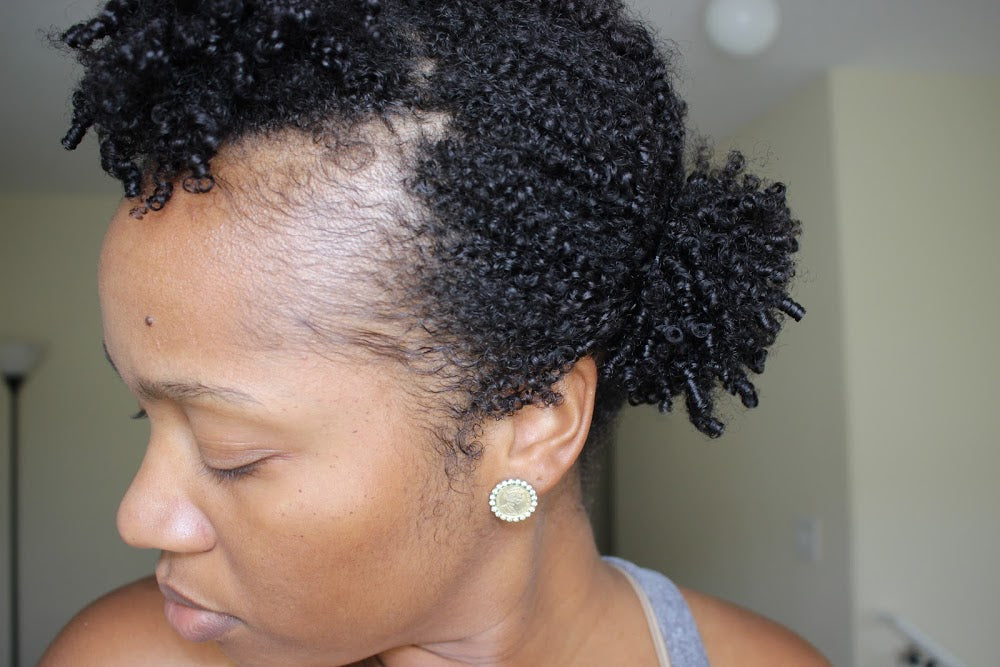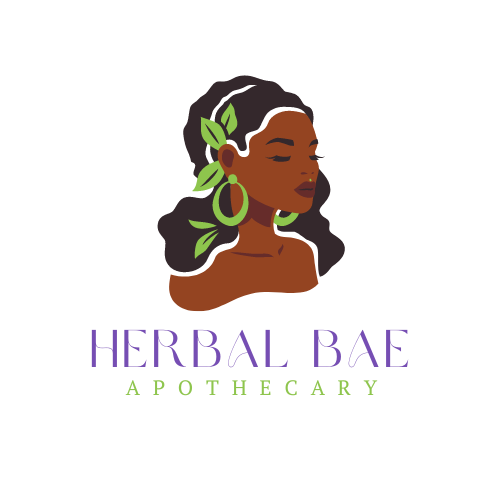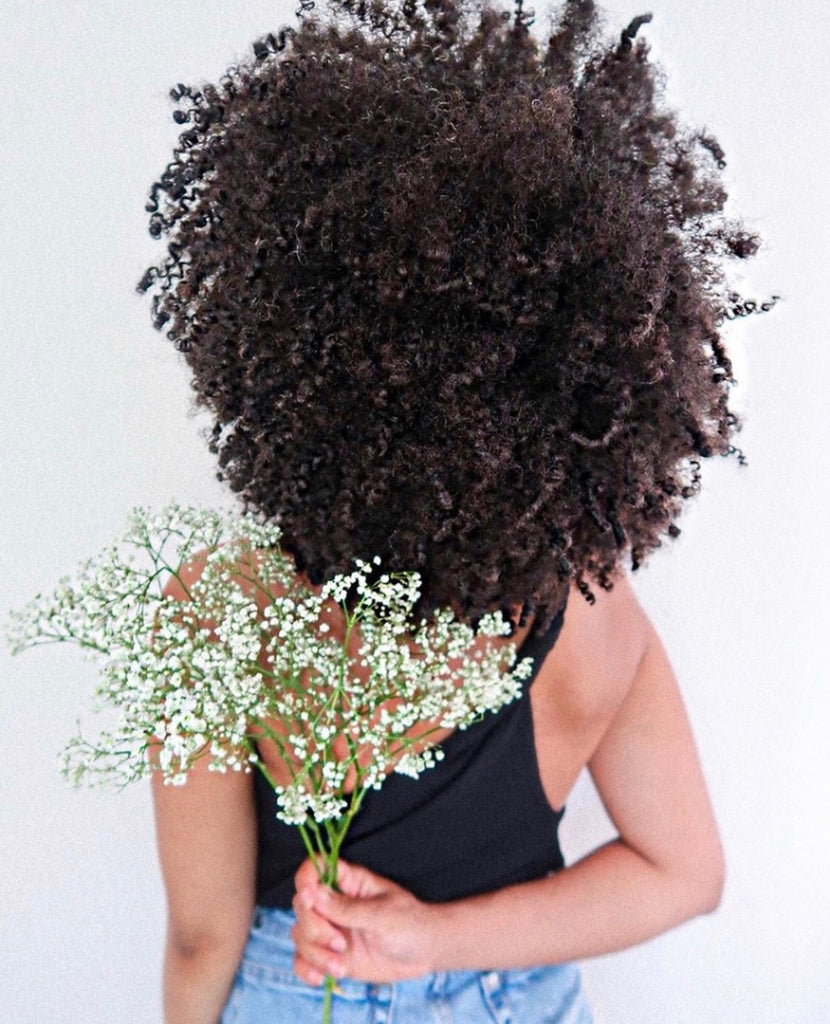
Postpartum Hair Shed: Why It Occurs & What To Do About It Holistically

The hair loss that many women experience postpartum can be distressing, overwhelming, and even traumatic. Losing your hair at any time can be upsetting, but especially one where there are so many big changes happening and your body has gone through immense transformation.
Many new moms are wondering if postpartum hair loss is normal (yes, but to an extent), if and when it will stop (it should), and if there’s anything they can do about it (yes, lots!).
So while you may feel desperate right now, take a deep breath and read on. There’s lots of hope to restore your beautiful locks- even creating thicker, stronger, and shinier hair than you’ve ever had before!
And bonus? When you support healthy hair growth from the roots (no pun intended), you’re also deeply nourishing your body and caring for yourself- things you absolutely need postpartum and into motherhood.
What is postpartum hair loss and why does it happen?
Postpartum hair loss- also referred to as postpartum “alopecia” or “telogen effluvium”- is the loss of hair from the scalp that typically begins around 2-5 months postpartum.
This shedding happens due to certain hormonal changes that occur postpartum and therefore, is normal! In fact, it’s estimated that around 50% of new moms experience this shedding, but it’s likely that more do but just don’t notice it (we know of course, a lot of odd things can be chalked up to part of the experience of being a mom!)
Our hair follicles regularly go through natural cycles of growth and rest- with most of our hair growing at any one time and a small percentage in a resting phase. Every few months, the resting hair falls out to allow for new growth to come in!
Pregnancy, however, impacts this growth cycle in a way that leads to less loss during pregnancy and more during postpartum.
More specifically, certain hormones that rise during pregnancy including progesterone and thyroid cause hair follicles to remain in the anagen- or hair growth- phase for longer. (You may notice that during pregnancy, your hair doesn’t shed as much and overall feels thicker and more voluminous).
But once you give birth, hormone levels drop, causing hair follicles to enter a phase of hair loss, which typically continues for an average of 6-24 weeks (1). There’s some variation due to bioindividual factors but the good news is that it’s temporary!
Some do believe there are also underlying emotional reasons for postpartum hair loss, too- which are interesting to explore.
For one, hair has historically been associated with power, strength, and vibrancy. It’s a common metaphor for life, for beauty, and sensuality. So temporarily losing one’s hair in the postpartum period can symbolize a loss or change in any of these things.
Hair loss can also symbolize a “shedding” of parts of your old self, which is a common piece of matrescence (the process of becoming a mother).
Some moms do experience hair loss after weaning from breastfeeding, which can be due to hormonal changes but may also be related to stress and emotional aspects of this process. Again, this should be temporary.

How do you know if your postpartum hair loss is abnormal?
Fundamentally, postpartum hair loss is normal- but only to an extent. Keep in mind that society typically normalizes intense and debilitating symptoms that actually are not normal.
Some red flags when it comes to postpartum hair loss:
-
It continues for longer than 6 months/beyond 1 year postpartum
-
You don’t see new growth (little baby hairs) even after it’s stopped
-
It worsens with each pregnancy
-
You have other symptoms present along with it like fatigue, irregular cycles, feeling cold/having cold hands and feet, insomnia, weight gain, or sugar cravings
Disclaimer: This content was created and should be used for educational purposes only. If you are noticing extreme shifts in your mood or health please contact your healthcare provider as soon as possible!
Supporting hair growth and health through nutrition
While it may not be possible to totally prevent postpartum hair loss, there’s lots you can do to reduce the severity and help with regrowth!
It’s very important to remember that hair is a body tissue, and therefore, it- like any other tissue- requires energy and nutrients to grow and repair. Beyond what’s normal during postpartum, hair loss is typically a metabolic issue!
nutrition involves consuming a balanced diet rich in vitamins, minerals, and nutrients that directly benefit hair follicles, scalp health, and overall hair structure. Here’s a guide to the key nutrients and foods that promote healthy hair growth:
Protein
- Role in Hair Health: Hair is primarily made of keratin, a protein. Adequate protein intake is essential for hair structure and growth. Without enough protein, hair can become weak and brittle.
- Food Sources: Eggs, lean meats (chicken, turkey), fish, beans, legumes, quinoa, nuts, and seeds (like hemp seeds).
Biotin (Vitamin B7)
- Role in Hair Health: Biotin is crucial for keratin production and helps strengthen hair and nails. A deficiency in biotin can lead to thinning hair.
- Food Sources: Eggs, almonds, sweet potatoes, spinach, broccoli, and whole grains.
Iron
- Role in Hair Health: Iron is necessary for red blood cells to carry oxygen to hair follicles. Low iron levels can lead to anemia, which is a major cause of hair loss, especially in women.
- Food Sources: Red meat, spinach, lentils, quinoa, pumpkin seeds, and fortified cereals.
Omega-3 Fatty Acids
- Role in Hair Health: Omega-3 fatty acids nourish the scalp, reduce inflammation, and support hair thickness and elasticity.
- Food Sources: Fatty fish (salmon, mackerel, sardines), flaxseeds, chia seeds, walnuts, and hemp seeds.
Zinc
- Role in Hair Health: Zinc supports hair tissue growth and repair, helps keep oil glands around hair follicles working properly, and prevents hair loss.
- Food Sources: Oysters, beef, pumpkin seeds, chickpeas, cashews, and yogurt.
Vitamin C
- Role in Hair Health: Vitamin C is a powerful antioxidant that helps protect hair from oxidative stress caused by free radicals. It also helps in the production of collagen, which strengthens hair. Additionally, vitamin C improves iron absorption, supporting hair growth.
- Food Sources: Citrus fruits (oranges, lemons), strawberries, bell peppers, kiwi, and broccoli.
Vitamin A
- Role in Hair Health: Vitamin A supports the production of sebum, the natural oil that moisturizes the scalp and keeps hair healthy. However, too much vitamin A can lead to hair loss, so balance is key.



